Poll: San Antonio Voters Overwhelmingly Support Comprehensive Police Reform
New polling in Bexar County reveals vast support for reforms to San Antonio policing, including increased transparency and alternative crisis response.
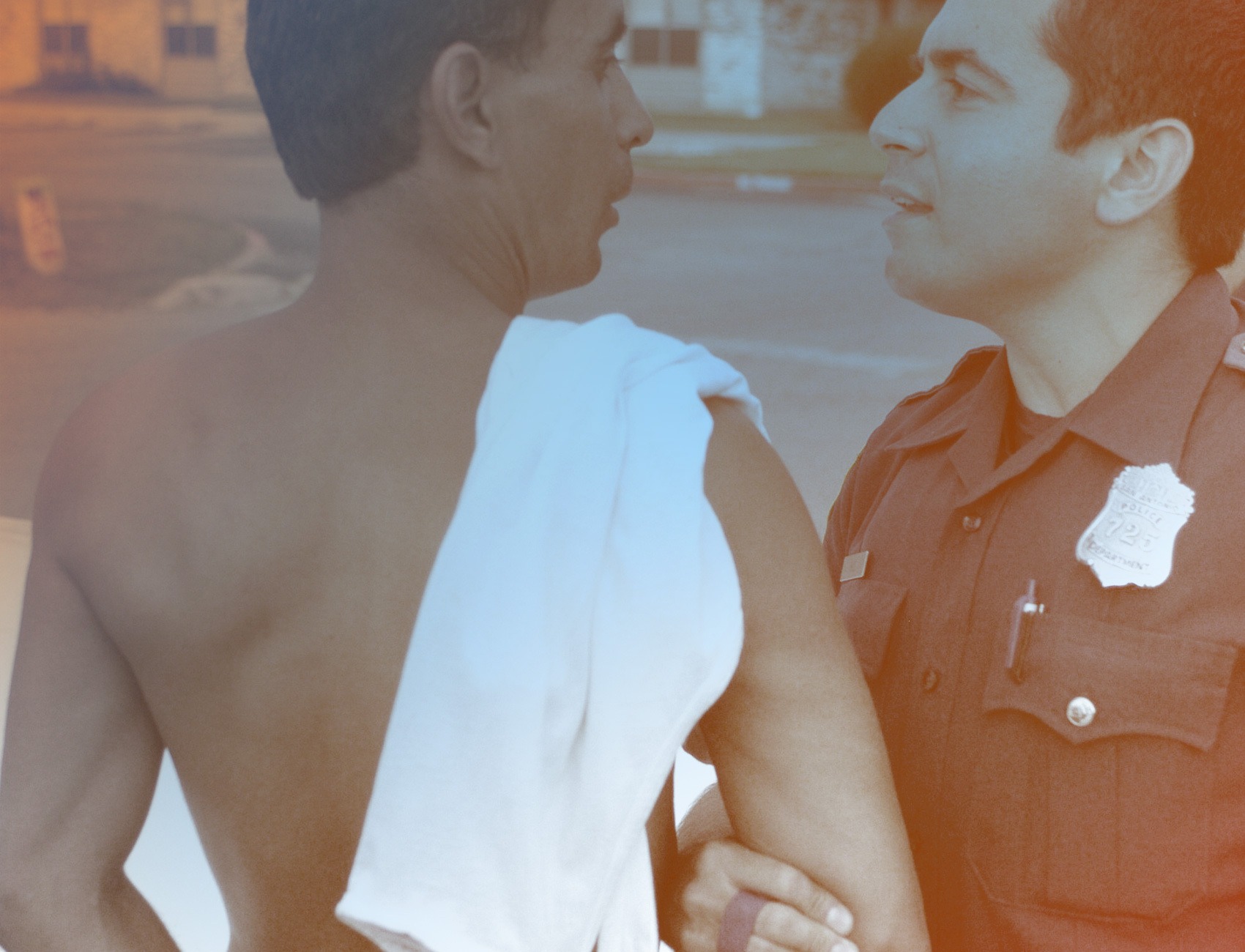
New polling from The Appeal in Bexar County reveals vast support for policing reform in San Antonio, including increased transparency in police contract negotiations; discipline for police wrongdoing; non-law enforcement, community-led programs to prevent violence; and replacing armed police with trained civilians for transit enforcement and responses to mental and behavioral health crises.
In San Antonio:
- 64 percent of likely voters support replacing transit officers with civilian enforcement, including 80 percent of Democrats, 54 percent of independents, and 57 percent of Republicans;
- 71 percent of likely voters support community-based programs to prevent violence, including 86 percent of Democrats, 59 percent of independents, and 70 percent of Republicans;
- 64 percent of likely voters support the use of non-police responders to mental health-related or substance use crises, including 70 percent of Democrats, 64 percent of independents, and 56 percent of Republicans;
- 50 percent of likely voters support legislation that would repeal the San Antonio Police Department’s collective bargaining rights in order to increase officer accountability, with just 18 percent opposed;
- 80 percent of likely voters support public transparency for contract negotiations between the San Antonio Police Department and the City of San Antonio, including 79 percent of Democrats, 86 percent of independents, and 71 percent of Republicans
Polling Results
San Antonio’s VIA Metro Transit police officers spend most of their time responding to non-emergencies resulting from low-level violations, like non-payment of fare, and addressing issues related to mental health or substance use disorder crises or a lack of housing or health care. Some cities are replacing their armed transit police with civilian enforcement officers and experts in mental health or homelessness that can better address the underlying problem.
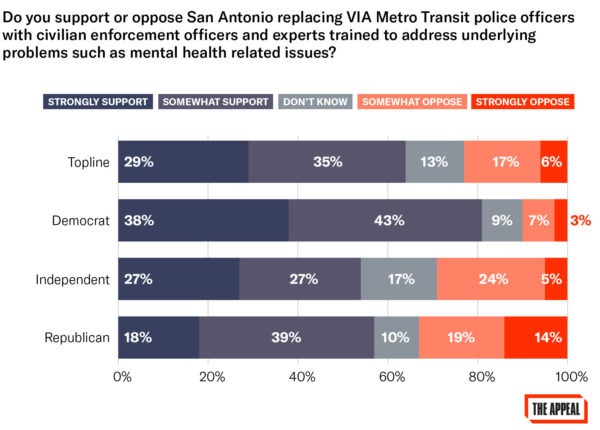
Over the course of the past few years, many cities have changed the way they handle emergency situations (911 calls). In these cities, many emergency calls, such as mental health or substance use disorder crises, check-ins for health and safety, or a lack of housing or health care are handled by non-police first responders who are experts in addressing mental health and other related issues.
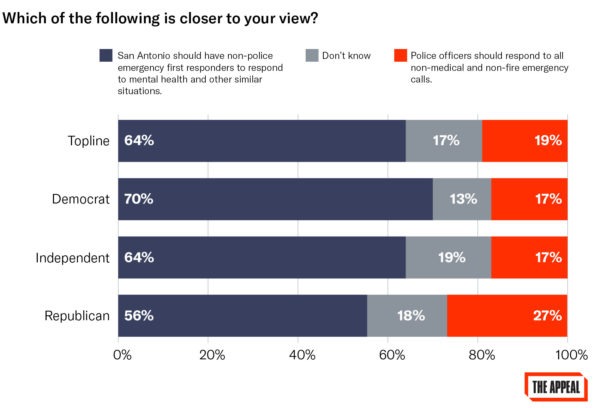
Many cities have community-based programs designed to interrupt and prevent violence before it happens.
Studies show that the reason these programs work is because gun violence is cyclical, and it often spreads through cycles of retaliation. By working with communities to identify situations that could turn deadly, interruption can effectively decrease gun violence.
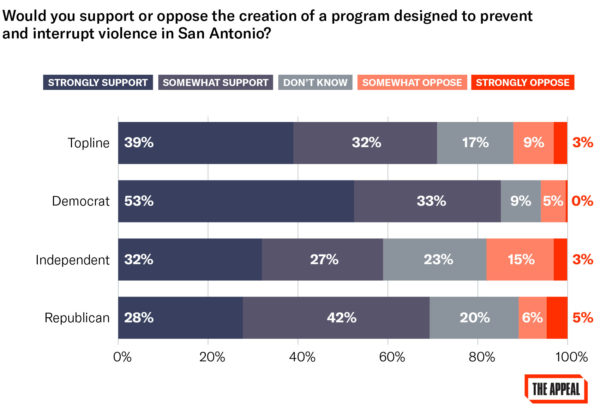
In San Antonio, the police union’s current collective bargaining agreement limits the police chief’s ability to appropriately discipline officers. In San Antonio there is a measure on the ballot called Proposition B that would repeal local authority for collective bargaining for police unions, but still require the union and city to meet and confer on issues related to discipline.
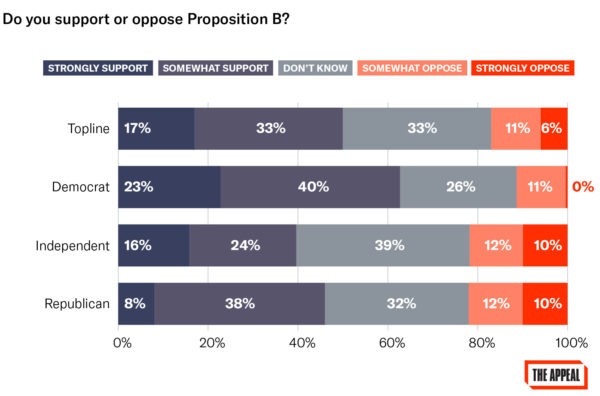
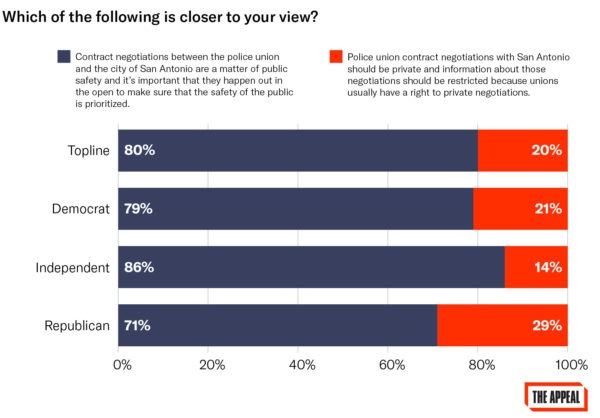
Key Context
George Floyd’s murder last May highlighted a longstanding, national policing crisis and sparked widespread demands for change. In San Antonio, as protests came to a head in June 2020, Mayor Ron Nirenberg announced that he would reform the city’s police department, saying, “I’m the mayor of this goddamn city, and we’re going to make change together.” He told his constituents that if he did not follow through on this promise, they should hold him accountable in the next election. Yet, to date, he has failed to take any steps toward reform.
In September 2020, as activists pushed for diverting police department funding into social services, the city council voted to increase the police department’s budget by $8 million. The budget increase was largely tied to the police department’s collective bargaining agreement with the city, an agreement that also limits the police chief’s ability to discipline officers or investigate wrongdoing. Growing frustration over the agreement and the lack of police accountability built momentum around Proposition B, an upcoming ballot measure that would repeal the police department’s collective bargaining rights. The ballot measure and its support echo public demands for transparent contract negotiations between the city and the police.
San Antonio voters’ support for other reforms is part of a growing national trend to reimagine public safety without police. For example, San Francisco and Portland, Oregon launched non-police emergency first response programs to handle mental health and substance use-related crises. These new initiatives are modeled after a popular program founded in Eugene, Oregon that has a 30-year track record of success. In Washington, DC, the city is taking steps to create civilian oversight of transit police. And community-led violence interruption programs in Baltimore, New York City, and Philadelphia have led to declines in gun violence.
City-level reforms have also curtailed the role of police unions in diminishing police accountability and restricting transparency. In June 2020, the DC City Council amended police collective bargaining power to increase accountability. And advocates in Philadelphia and Austin have pushed city officials to increase transparency around police union contract negotiations to advance more meaningful reform.
Polling Methodology
From Feb. 27 to Mar. 6, 2021, The Appeal conducted a survey of 420 Bexar County adults web panel respondents in English and Spanish. The sample was weighted to be representative of likely voters by age, gender, education, race, and voting history. The survey was conducted in English. The margin of error is ±4.75 percentage points.

